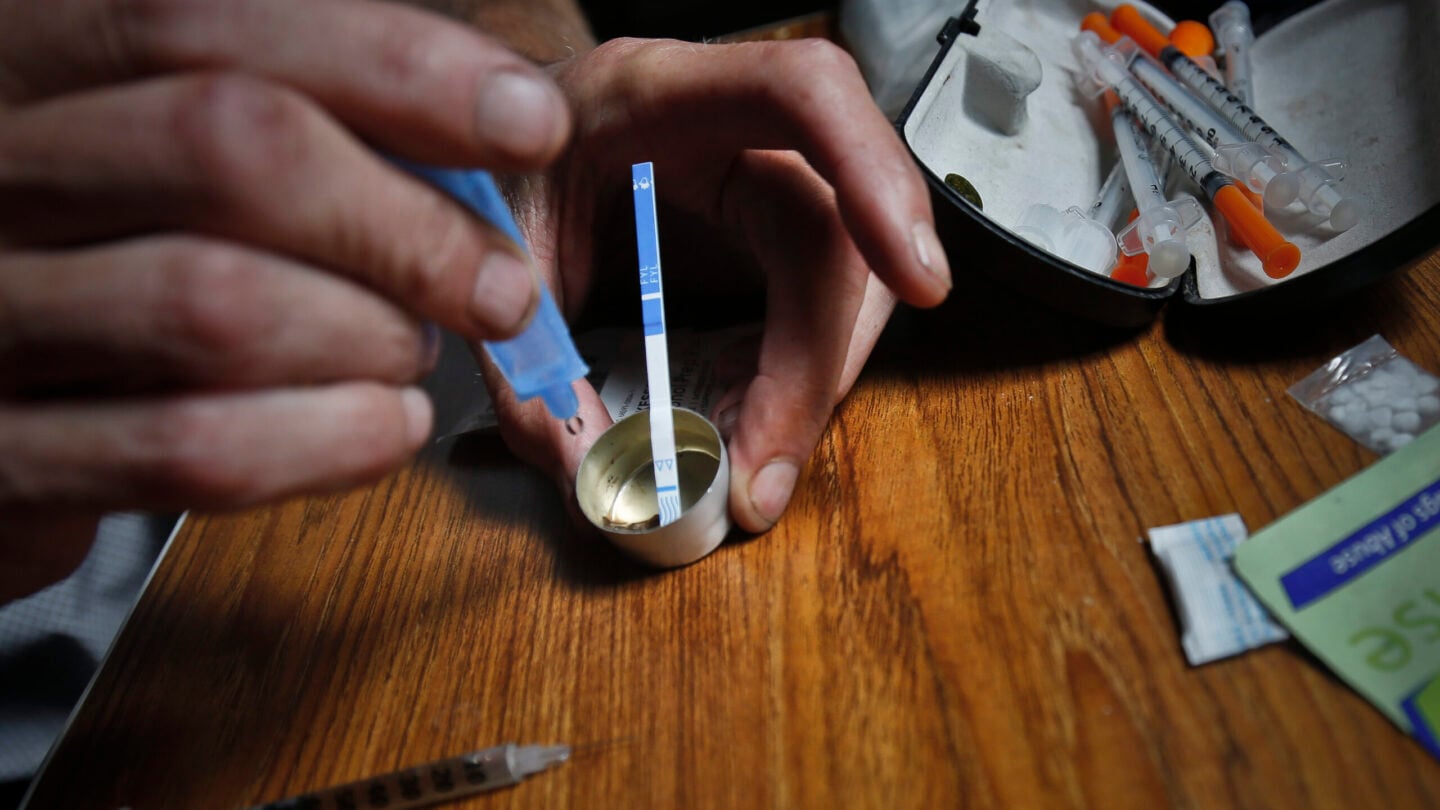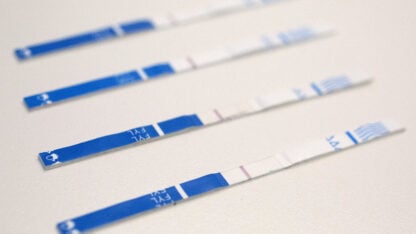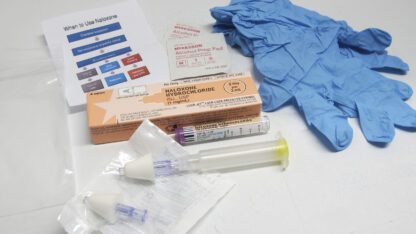Advocates await fentanyl test strips in Georgia amid record-high overdoses

Recovery, harm reduction and mental health advocates say more needs to be done to prevent drug overdoses in the state.
And many are eagerly awaiting Gov. Brian Kemp’s signature on HB 1175, sponsored by Democratic state Sen. Jen Jordan of Atlanta, that would decriminalize the use of fentanyl test strips in Georgia.
Fentanyl is a highly potent synthetic opioid that’s difficult to detect by taste, smell or sight. Even small amounts can cause an overdose.
The fentanyl test strips allow a person to test for it before taking another drug.
“We want people to get fentanyl strips. We want people to have Narcan. That’s what saves lives,” says Jeff Breedlove at the Georgia Council on Substance Abuse.
This week, the Atlanta-based U.S. Centers for Disease Control and Prevention reports at least 107,622 Americans died from a drug overdose last year, the highest yearly death toll on record, and a 15% jump over the previous record the year before.
Breedlove says people struggling with addiction and recovery have been especially hard hit by pandemic-related stress and isolation, and limits to the availability of treatment.
“What COVID-19 has done is, it’s exacerbated the medical condition behind both mental health cases and substance use disorder cases and it’s triggering folks into their medical issues around our disease,” he says. “It’s only going to get worse before it gets better.”
Georgia’s recent spike in overdoses is also linked to street drugs, including stimulants, combined with fentanyl, according to numbers from state health officials.
Between early February and mid-March alone, the Georgia Department of Public Health reported at least 66 emergency department visits involving the use of fentanyl-laced cocaine, methamphetamine, crack, heroin, painkillers and cannabis.








